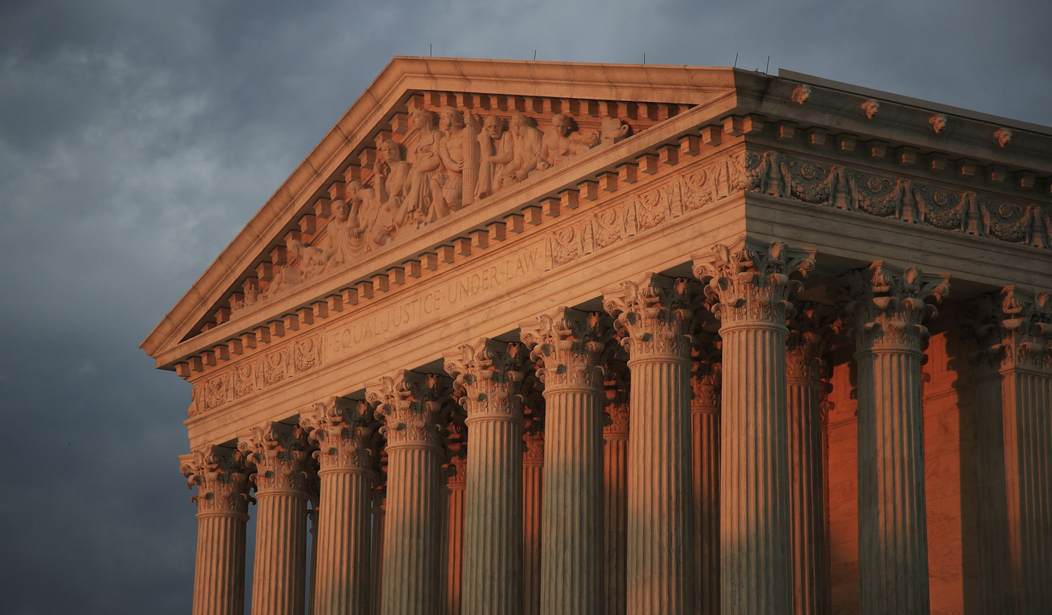The just-ended Supreme Court term went exceedingly well for individual liberty. From property rights to government agencies to offensive words, there were triumphs for individual rights and a pushback against the encroaching regulatory state.
Take property rights, for example. When rural Scott Township, Pennsylvania, told the public it could trespass across Rose Knick’s 90 acres of farmland to look for alleged graves, she could get no relief out of state court. But, when she went to federal court arguing that the town took an easement across her property, she was again rebuffed based on a 34-year-old Supreme Court precedent — Williamson County v. Hamilton Bank — which locks the federal courthouse doors to landowners.
In other words, property rights were the only right protected by the Constitution that could not be protected in federal court. Represented pro bono by Pacific Legal Foundation, Rose managed to get Williamson County overturned. As the Supreme Court put it in Knick v. Scott Township, property rights are no longer the “poor relation” of constitutional rights.
Regulatory agencies were also in the Court’s cross-hairs in Kisor v. Wilkie, a case asking whether courts should always defer to what federal agencies say their regulations mean. In recent years, a growing number of scholars, lawyers, and even judges have begun to question the doctrine that says courts can’t second-guess what regulators say that a law means or even what a regulation interpreting the law means.
James Kisor was a Vietnam War vet who was in a dispute over some disability benefits he thought he was owed. He also believed that the Veterans Administration regulations favored his case, but the VA saw things differently. The VA proceeded to tell the Supreme Court that under the deference doctrine, it was the VA’s way or the highway.
Recommended
Justice Kagan, writing for the Court, said in essence, “not so fast.” While deference may be appropriate in some cases, it’s not appropriate in all. From now on, the justices held, the courts must examine all the facts and circumstances before deciding to defer to an agency’s judgment over what its regulations mean. While this wasn’t a complete takedown of deference, it should prove to be a pretty effective body slam. Or, as one justice put it, deference has been “zombified.”
Earlier in the term, the Court was confronted by an absent-but-endangered gopher frog on a tree farm in Louisiana. That is, the U.S. Fish & Wildlife Service designated this tree farm as critical habitat for the frog, even though the frog didn’t live on the property, hadn’t been seen near the property in a half-century, and would likely die out if it were moved there. Facing $34 million in costs, the landowners sued. A unanimous court in Weyerhaeuser v. U.S. Fish & Wildlife Serviceeasily rejected the government’s arguments, and held that “critical habitat” has to contain habitat. And, if the frog can’t survive on the land, then calling it critical habitat can’t be supported.
Lastly, the Court proved that you can trust it on matters of free speech. First, when a private New York City cable operator decided to police the content of its public access channel, a person denied a platform sued, claiming a First Amendment violation. But the Constitution prevents only government from restricting speech, not private persons, newspapers, or cable companies. In a decision that should have significant implications for the modern internet era, the Supreme Court affirmed that just because someone receives a license to operate, doesn’t prevent it from deciding what to publish.
And in its final free speech case of the term, the Court held in Iancu v. Brunetti that the federal government couldn’t refuse a trademark to a fashion company with the brand and an acronym that may be offensive to some but clever to others: “Friends U Can’t Trust.” The bottom line, according to Justice Kagan’s opinion, was that the government may not engage in viewpoint discrimination.
These decisions should be celebrated by fans of liberty, and we should be encouraged that the Supreme Court looks poised to protect individual liberty in the coming term as well.
James Burling is Vice President for Legal Affairs at Pacific Legal Foundation. In 2001, James successfully argued a major property rights case, Palazzolo v. Rhode Island, before the United States Supreme Court — a case which affirmed that rights in property do not disappear when land is bought and sold.

























Join the conversation as a VIP Member